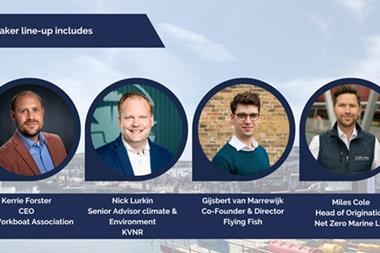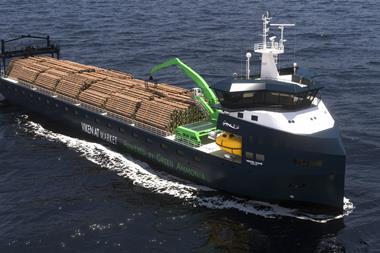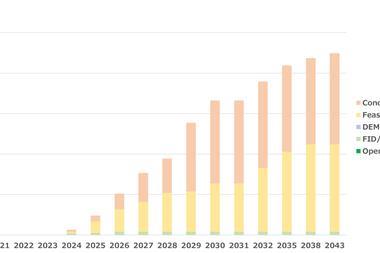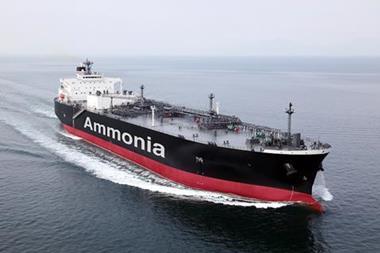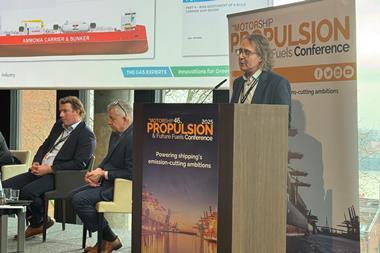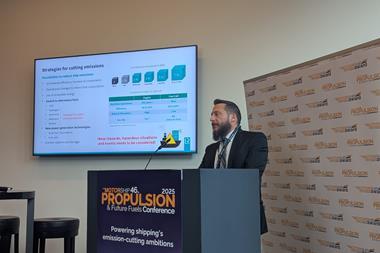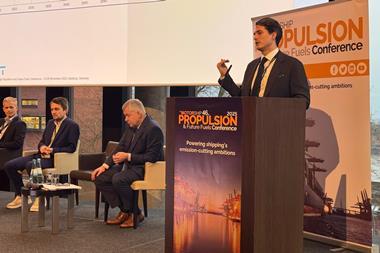At this year’s Propulsion and Future Fuels event, a detailed discussion on ammonia’s potential as a marine fuel took place
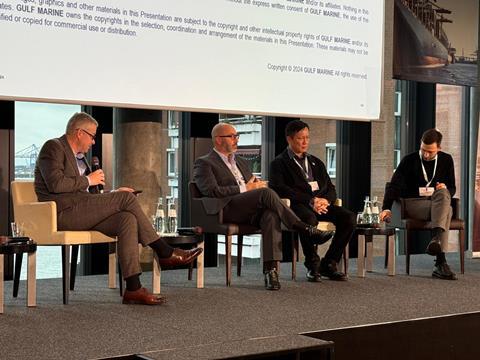
With key insights from Kristian Mogensen of MAN Energy Solutions and Luca Lori of Alfa Laval. Both experts shed light on the progress and challenges in adapting ammonia for maritime applications.
Kristian Mogensen emphasised the extensive work MAN Energy Solutions has invested in ammonia engine development since 2019. “We’ve dedicated over 5,000 hours on this resulting in more than 40 patents pending and several already granted,” he stated. Their efforts include testing a 7S60 engine on ammonia and achieving significant milestones. “We’ve completed over 300 R&D tests and demonstrated that low NOx emissions can be achieved through engine tuning alone, eliminating the need for after-treatment systems.”
Mogensen highlighted key achievements in reducing emissions. “Ammonia slip—a critical issue—has been reduced by 40% through design improvements,” he said. However, challenges remain, such as ensuring optimal engine performance and fine-tuning ammonia combustion in diesel-cycle engines. Pilot projects are crucial for proving this technology before full market deployment. “We’re working closely with shipbuilders and engine designers in major shipbuilding nations like China, Korea, and Japan, with around 30 pilot projects already underway,” he added.
Luca Lori, representing Alfa Laval, focused on the company’s role in developing ammonia fuel supply systems. “Safety, efficiency, and usability are our pillars when designing solutions for low-flashpoint and toxic fuels like ammonia,” Lori explained. He described Alfa Laval’s ammonia release mitigation systems, which utilize water absorption and boiler-based solutions to handle potential leaks or venting. “Water absorption is ideal for immediate response, while the boiler solution effectively burns effluent in controlled scenarios,” he added.
Lori also addressed the challenges of designing ammonia systems. “Ammonia is new to the marine industry, requiring innovations to ensure compatibility and safety. We’ve progressed from theoretical models to full-scale testing, validating equipment performance under realistic conditions,” he said. Alfa Laval has collaborated extensively with engine manufacturers, leveraging prototype systems to advance ammonia R&D.
Both experts underlined the transformative potential of ammonia as a marine fuel. While Mogensen detailed MAN’s readiness to deliver commercial ammonia engines in the near future, Lori highlighted Alfa Laval’s solutions for reliable and safe ammonia fuel handling.
For the shipping industry looking for alternatives to conventional fuels, ammonia stands out for its emissions reduction potential. However, as both speakers acknowledged, ongoing testing and collaboration across the supply chain will be crucial to making this vision a reality.

